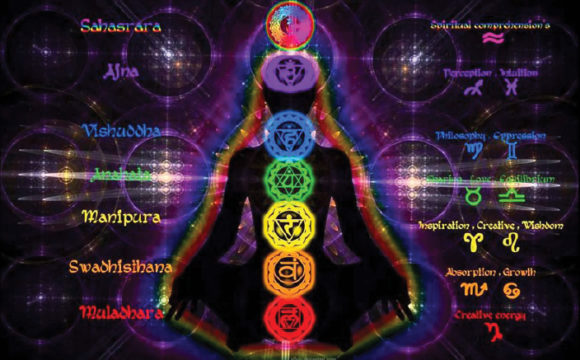taken from The Jesus Mysteries by Revd John Shelby Spong, Bishop of Newark
The King James translation of the Gospel of John opens with the famous and poetic passage :
“In the beginning was the Word, and the Word was with God, and the Word was God. The same was in the beginning with God. All things were made by him; and without him was not anything made that was made. In him was life and the life was the light of men.’
Many readers of this text find it strangely moving, but would confess to not really understanding what it means. This is not surprising, because without some knowledge of Pagan philosophy it really does make little sense.
In the original Greek, the term here translated at ‘Word’ is ‘Logos’. The concept of the Logos is completely foreign to Judaism and is entirely derived from the Pagan Mysteries. As long ago as the sixth century BCE Heraclitus set out on a journey of self-discovery and discovered the ‘Logo shared by all’. He writes :
‘Having hearkened not unto me, but unto the Logos, it is wise to confess that all things are One.”
The Pagan sage Epictetus preaches : ‘The Logos of philosophers doth promise us peace which God proclaimed through his Logos.’ The Roman Vitruvius writes : ‘Let no one think I have erred if I believe in the Logos. Clement of Alexandria acknowledges that : ‘It may be freely granted that the Greeks received some glimmers of the diving Logos’ and quotes the legendary Pagan sage Orpheus, who proclaims : ‘Behold the Logos divine. Tread well the narrow path of life and gaze on Him, the world’s great ruler, our immortal king.’ But this Pagan concept is much older than the Greeks. It can be found in the ancient Egyptian Pyramid Texts of the Third Dynasty which were written more than 2500 years before the Christian era!
How should we understand this ancient concept of the Logos? In ancient Greek, Logos has many levels of meaning which our term ‘Word’ does not begin to capture. One of these is expressed by the Church fathers Clement and Origen, who describe the Logos as ‘the Idea of Ideas. It is God’s primal thought. The legendary Pagan sage Hermes Trismegistus expresses exactly the same concept. He describes the Logos – the Idea of Ideas – emerging from the Oneness of God like a word or thought. For Hermes, as for Clement and Origen, the Logos is the first thought of the great Mind of God, through which he creates the universe.
Christians personify the relationship between God and the Logos as that between a father and a son. The Logos is the ‘Son of God’. Yet they also teach that the Father and the Son are aspects of each other. St John expresses this paradox: ‘The Logos was with God, and the Logos was God.’
These are actually ancient Pagan doctrines, propounded by sages such as Hermes Trismegistus, who also calls the Logos ‘the Son of God’. He explaines that like mind and thought, the Father and the Son are really One, but when separated from each other they appear as twol. Likewise, in the sixth century BCE Heraclitus had written : ‘The Father and the Son are the same’. Clement acknowledges that Euripides had ‘divined as in a riddle that the Father and the Son are one God.’
How should we understand this mysterious relationship between the Logos and God, the Father and the Son? Clement writes :
‘The Son is the Consciousness of God. The Father only sees the world as reflected in the Son.’
The Logos is God consciousness of Himself. It is the One Soul of the Universe which is conscious through all beings. This is why Heraclitus sets out to find himself, but discovers a ‘Logos shared by all’, because the Logos is our essential common identity. The Christian philosopher Origen writes :
‘As our body, while consisting of many members, is yet hold together by one soul, so the universe is to be though of as an immense living being, which is held together by One Soul – the power and the Logos of God.’
Just as St John tells us that Jesus is an embodiment of the Logos, so the Pagan initiate Plutarch teaches that Osiris is ‘the Logos in itself, transcendent and impassible’. By equating Jesus Christ with the Logos, St John is making it clear that he is a personification of this One Soul of the Universe, as Osiris – Dionysus is for Pagans. Christ is in us all, because he is the essential divine nature we all share. From this perspective, the Son of God is not an historical figure who lives in time, but an eternal philosophical principle, for, as Origen writes ‘The Father did not beget the Son, but ever is begetting him.’
So, is there any real difference between Christian and Pagan understanding of the Logos? Once again, it is only found in the Christian idea that, unlike the Pagan god-man who mythically embodied the Logos, Jesus literally embodied this philosophical principle. St Augustine writes of his studies of Pagan philosophy:
‘I read there that God and the Word was born not of flesh and blood, not of the will of man, nor the will of the flesh, but of God. But that the Word was made flesh and dwelt amongst us, I read not there.’
The essential idea which divided the Pagans and Christians of the ancient world was the Christian belief that one man, and one man only, had literally been the Logos made flesh. To the Pagans the notion that the Logos we all share should in some way be manifest in a single human being was impossible. The extraordinary claim that a carpenter from Nazareth actually was the one and only Son of God and incarnation of the Logos was the only thing that Christians could latch onto that definitively differentiated them from their Pagan neighbours. They would, however, spend centuries arguing over what it could possibly mean.








